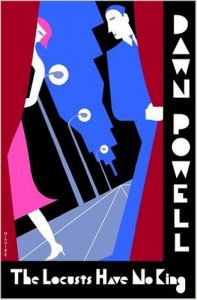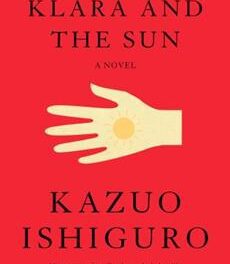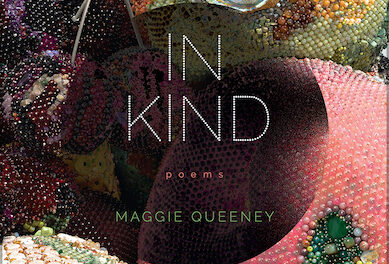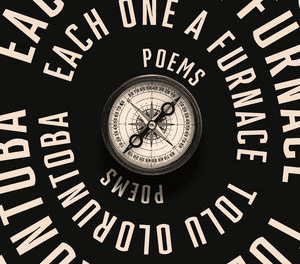 Alex Smith: Hemingway once called Dawn Powell (sarcastically, perhaps) his favorite living writer, and Gore Vidal dubbed her “The American Writer.” She was, indeed, a contemporary and friend of many famous novelists of the mid-twentieth century. And yet her work is virtually unknown today.
Alex Smith: Hemingway once called Dawn Powell (sarcastically, perhaps) his favorite living writer, and Gore Vidal dubbed her “The American Writer.” She was, indeed, a contemporary and friend of many famous novelists of the mid-twentieth century. And yet her work is virtually unknown today.
Hence my surprise upon reading Powell’s brilliant The Locusts Have No King, which is set in late 1940s New York. The author’s personal knowledge of the city and her thoughtful descriptions make the urban landscape a character in its own right. The novel is essentially a satire, though this fact seems to have escaped the few reviewers of the book, who find fault with its humorous unconcern for human feeling. These critics miss the masterful way the novel manages to be simultaneously hysterical and heartbreaking. As a reader, I was constantly torn between the desire to laugh and cry.
Cast as a love story between Lyle Gaynor, a married New York playwright, and Frederick Olliver, a repressed academic historian, The Locusts Have No King uses misunderstanding, double-talk, and a diverse cast of characters (my favorite being the unforgettable frenemies Caroline and Lorna, who “repeat the revelations they had been repeating [to each other] for years to glazed eyes and deaf ears”) to obfuscate the relationship that might otherwise seem of central importance. In fact, for chapters at a time we lose sight of both protagonists and hear about them only through snippets of gossip the peripheral characters reveal. The novel’s insistence upon rendering a multitude of perspectives causes the reader to see the central relationship in context and to question the possibility of love in a world of consumption and materialism.
The ending is startling for its uncharacteristic sentimentality, but rather than assuring the reader of the healing power of true love, it becomes a bleak reminder of the transactional nature of relationships. This complexity makes Powell’s work not only compelling but also significant to the American literary tradition. Her astute rendering of its characters’ inner and interpersonal lives is reminiscent of Edith Wharton’s, and the novel’s humor reminds one of John Kennedy Toole’s Confederacy of Dunces. The successful blending of absurdity and realism suggests how Powell’s work might enrich intertextual conversations across genres.
In short, I’m now obsessed with Dawn Powell. Upon completing The Locusts Have No King, I ordered several more of her novels, which promise to be just as starkly honest, comical, and satisfying.










